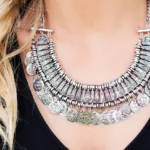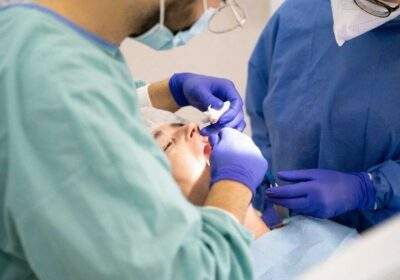
The Science Behind Natural Fertility Supplements for Women
Several micronutrients, including vitamin B9 (folic acid) and other B vitamins, omega-3s, and antioxidants, can improve fertility. Taking these supplements before and during pregnancy can prevent nutrient deficiencies, decrease oxidative stress, and lead to a shorter time to conception.
Coenzyme Q10, vitex, and ashwagandha can also boost fertility by helping to normalize prolactin levels, which can interfere with conception and hormone balance.
Antioxidants
Many different supplements, vitamins, and herbs can help you conceive. However, most of them are only part of a larger fertility-boosting strategy. The key is reducing oxidative stress. It’s estimated that oxidative stress causes 30-80% of infertility cases.
Daily, our cells come into contact with harmful molecules called free radicals. Some physiological processes require a certain amount of them, like ovulation, but excess amounts may cause damage to cells and tissues due to oxidative stress. Antioxidants act as a defense mechanism against this type of cellular damage.
Natural fertility supplements for women include Vitamin C, Vitamin E, Coenzyme Q10, and beta-carotene. Taking these supplements helps to balance the body’s oxidative state, supporting a healthy cell cycle and increasing your chances of conceiving.
In addition to these antioxidants, it’s important to take omega-3 fatty acids to support fertility health. These are found in foods like salmon sardines and supplements like Nordic Naturals’ Optimal Fertility softgels. These contain 830 mg of omega-3 fatty acids and are third-party tested, non-GMO, and vegan. They also provide a good amount of vitamin D, another crucial nutrient for fertility.
Inositol
Inositols are little molecules that look like glucose and can be found in many foods, with Myo-inositol being more common in plants (like nuts, beans, grains, and fruit). In contrast, D -D-chiro inositol is generally found in animal sources such as dairy products or eggs. They are important for healthy cell function and a key part of your body’s insulin/inositol signaling pathway. They also play an important role in regulating your menstrual cycle, modulating hormones, and enhancing egg quality.
Studies have shown that consuming both Myo-inositol and D-chiro inositol enhances ovulation, improves egg quality, and reduces symptoms of PCOS like hirsutism or acne. In addition, supplementation with these compounds can alleviate symptoms of endometriosis and other reproductive issues like uterine fibroids. It also benefits women undergoing ART by enhancing oocyte and embryo quality.
The best fertility supplements for women will include inositol and other dietary nutrients to help optimize egg health and menstrual cycle regulation. You will also want to be sure you are getting enough Vitamin B vitamins, particularly vitamin E, folic acid, and magnesium.
NAC
Many people trying to conceive are recommended or offered supplements to help improve fertility. This huge market includes tablets, chews, and even herbal teas that claim to boost natural fertility or improve outcomes from fertility treatments like IVF. However, not all of these products are evidence-based, meaning they’ve been thoroughly tested to see if they work.
One of the most popular ingredients in fertility supplements is N-acetylcysteine (NAC). This powerful antioxidant has antihistamine, mucolytic, and insulin-sensitizing properties. It’s also been shown to enhance spontaneous ovulation in women with polycystic ovarian syndrome, as well as increase egg and embryo quality in infertile women undergoing IVF.
Another common ingredient in fertility supplements is vitamin D. This nutrient is most famous for supporting bone health, but research suggests it may also help fertility. Low levels of vitamin D are associated with infertility for women with PCOS, and a recent study has found that it’s linked to improved pregnancy rates in IVF patients.
Other nutrients in fertility supplements include omega-3 fatty acids, coenzyme Q10, folate, and zinc. These are important for several biological functions, including cell growth and repair, hormone regulation, and cellular energy production. Folic acid is a B vitamin most commonly known for its role in lowering the risk of neural tube congenital disabilities. It’s an essential nutrient for pregnant and breastfeeding mothers and is found in prenatal vitamins.
Vitamin D
A good multivitamin is a great way to get vitamin D, which is linked to fertility in women. Folic acid is another essential fertility vitamin that helps prevent neural tube defects in fetuses. Shah also recommends vitamin B12, which has been shown to improve fertility in women undergoing fertility treatments and enhance sperm quality.
Research suggests that fish oil supplements containing omega-3 fatty acids may improve fertility by enhancing egg quality, increasing ovulation, and boosting the likelihood of conception. A good omega-3-rich acid supplement should have at least 500mg of DHA and EPA.
Antioxidant nutrients are another important component of fertility. They help reduce oxidative stress, disrupting the normal reproductive process. Vitamin C, for example, has been shown to help prevent oxidative damage. Another antioxidant to consider is acetyl L-carnitine, which has been shown to improve mitochondrial function and reduce cellular aging in the reproductive system.
Selenium is another micronutrient that can be very beneficial in boosting fertility. It may help to prevent oxidative stress, which can affect the uterine lining and the eggs inside. In addition, selenium is thought to be able to protect against miscarriage and gestational complications in the first trimester of pregnancy. It is recommended that pregnant women take about 60 mcg of selenium daily.

















